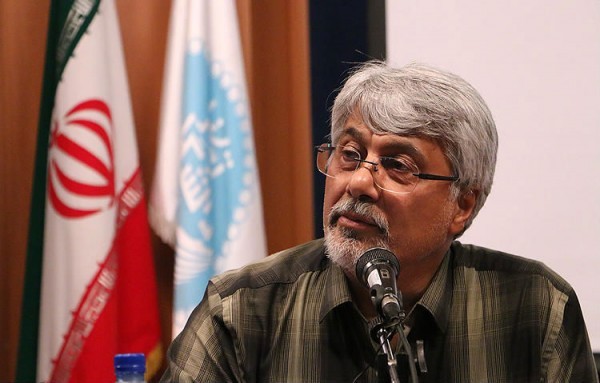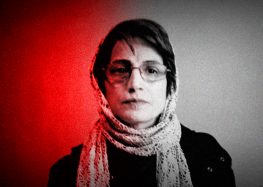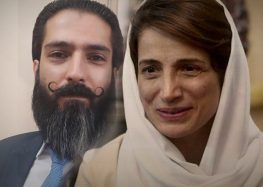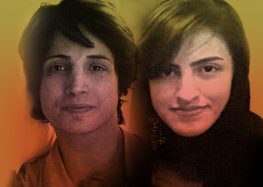Prominent Reformist Journalist Protests Solitary Confinement with Third Hunger Strike

The imprisoned political journalist Issa Saharkhiz has resumed his hunger strike after being placed in solitary confinement on February 21, 2016 despite having lost an alarming amount of weight. He has also not been allowed to meet with his lawyer, according to his son.
“My father has lost more than 20 kilos (44 lbs.). When my family saw him more than 10 days ago, they said he did not look well at all, physically. Now they have transferred him to solitary and we have no news at all [about his health],” Mehdi Saharkhiz told the International Campaign for Human Rights in Iran.
Saharkhiz has been charged with “acting against national security” and “propaganda against the state” but has not been allowed to meet with his lawyer nor has Saharkhiz’s lawyer been allowed to read the indictment.
“Why aren’t they treating prisoners according to their own laws? According to the law, those accused of political crimes should be tried by a jury. The law says the accused should be released from detention after interrogation until the start of the trial. But none of these laws are being carried out,” said Mehdi Saharkhiz. “Why do they expect others to surrender to the law but they themselves don’t do so?”
“My father had a two-minute telephone conversation with the family and all he was able to say was…that he was being taken to solitary. Obviously he was not allowed to say why on the phone,” he said.
“The trial starts on March 5 but my father’s lawyer has not been able to read the case file or have a meeting with him,” Mehdi Saharkhiz told the Campaign.
After being moved to solitary confinement on February 21, 2016, Saharkhiz protested by going on his third wet hunger strike since his arrest on November 1, 2015. He has also refused to take his medications, according to his son.
Saharkhiz’s trial will be held on March 5, 2016 at Branch 28 of the Revolutionary Court, according to his lawyer, Mahmoud Alizadeh Tabatabaee.
A crackdown has been underway in Iran for the past several months, with journalists, reformist-aligned activists, artists, and other figures targeted for arrest and prosecution by hardliners as the country approaches critical Parliamentary and Assembly of Experts elections on February 26, 2016.
Saharkhiz, a prominent reformist journalist, previously spent nearly five years in prison for publishing political commentaries critical of the outcome of Iran’s contested 2009 presidential elections.
Saharkhiz also previously served in President Mohammed Khatami’s reformist administration (1997-2005) as head of the press department at the Ministry of Culture and Islamic Guidance.






